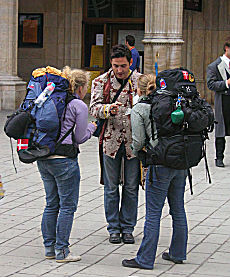The current March to April issue of National Geographic Traveler magazine has an article about user generated reviews that raises some interesting issues. I looked at the commercial invasion of the blogging world in one of my previous posts, but here author Christopher Elliott raises the issue of interested parties posting positive comments about their own businesses and negative ones about others, raising their star status and damaging others.
I was particularly drawn to this article because it addresses a problem faced by frequent travelers, and having spent a couple of years all in all on the road with all of my worldly belongings on my back I can relate to the problem.
When you are out there alone, who better to ask for advice than fellow travelers? Many look to the internet for recommendation, and here lies the problem, lack of competition. There are really only 2 large websites of reference, Yelp and Travel Advisor, so it is relatively easy to either build up a profile or destroy somebody else’s using different user names and computers.
Within the industry an understanding of the problem is widespread, and both companies named above defend their positions stating that they have vetting procedures to catch out the bogus reviewers. It is very telling however that after a British Advertising Standards Agency investigation, Trip Advisor changed its slogan from “reviews you can trust” to “reviews from our community”, the implications are obvious.
The broader implications are vast too, many people read reviews before choosing a dentist or a school for their kids, and a bit of underhand behaviour could easily destroy somebody’s reputation.
My personal opinion is that these problems are representative of wider issues of internet governance. They are essentially born out of monopoly, the democratizing power of the internet and peer to peer communication usurped by business interests and competition. An infiltration of commercial interest into a non commercial ideology, that of offering advice to someone who finds themselves in a position that you were once in, becomes unreliable.

18 thoughts on “Are user generated reviews reliable?”